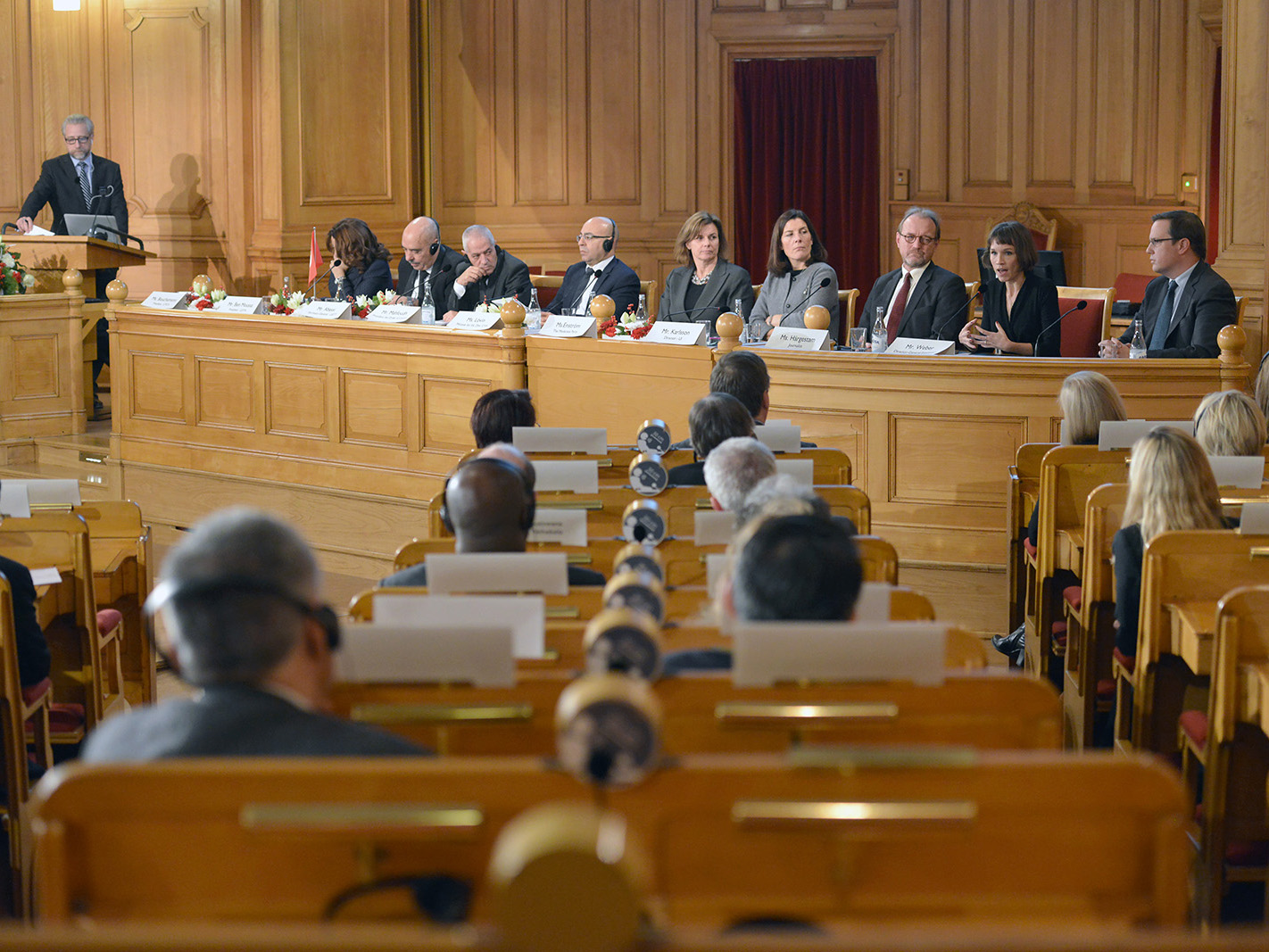“No one can build peace alone”: Learning from Tunisia at the Noble Peace Prize seminar

On 15 December, our Director-General Scott Weber took the stage alongside representatives of the Tunisian National Dialogue Quartet, who received the prize for their role in Tunisia in the aftermath of the Jasmine Revolution.
You can watch the full webcast of the event here.
The day’s discussion focused on the role of civil society in peacebuilding. Panelists were asked whether Tunisia can point the way as an example of successful peacebuilding.
The Tunisian Quartet was formed in 2013, at a precarious point in Tunisia’s democratization process. The Quarter includes the Tunisian General Labour Union (UGTT), the Tunisian Confederation of Industry, Trade and Handicrafts (UTICA), the Tunisian Human Rights League (LTDH) and the Tunisian Order of Lawyers. It took the intervention of the four civil society organizations, with deep roots in the social structures and the fabric of society, to reinvigorate the political process and reintroduce a sense of legitimacy.
“The success was achieved through acceptance, dialogue and listening to each other,” Ouided Bouchamaoui, President of UTICA, said. “We had the trust of the people behind us and we had the support of other civil society organizations.”
“The Tunisian approach can be a model for others,” she continued.
In a pre-event article on the award of the Nobel Peace Prize, Weber stated that despite there being no cookie cutter solution to peace, and that “every context is different and requires home-grown solutions,” important lessons can be still learned from the Quartet.
At the event Weber emphasized that “participation and inclusion are central to peacebuilding and must become the way societies deal with their problems” and that no one can build peace alone. “Successful peacebuilding requires different actors working together as a group to ensure effective collaboration, and the Tunisian quartet is an example of that.”
“The journey towards peace is never finished,” he concluded and stated that lessons must continue to be shared among peacebuilders across the world.
Other panelists included Isabella Lövin, Minister for International Development and Cooperation, Karin Enström, Foreign Policy Spokesperson of the Moderate Party, Mats Karlsson, Director for the Swedish Institute of International Affairs and Fanny Härgestam, a journalist who has reported extensively on Tunisia. The event was moderated by Henrik Hammargren, executive Director of the Dag Hammarskjöld Foundation and opened by Urban Ahlin, speaker of the Swedish Parliament.
We would like to thank the Dag Hammarskjöld Foundation, the Swedish Parliament and the Swedish Institute of International Affairs for organizing the event and for welcoming our Director-General.
